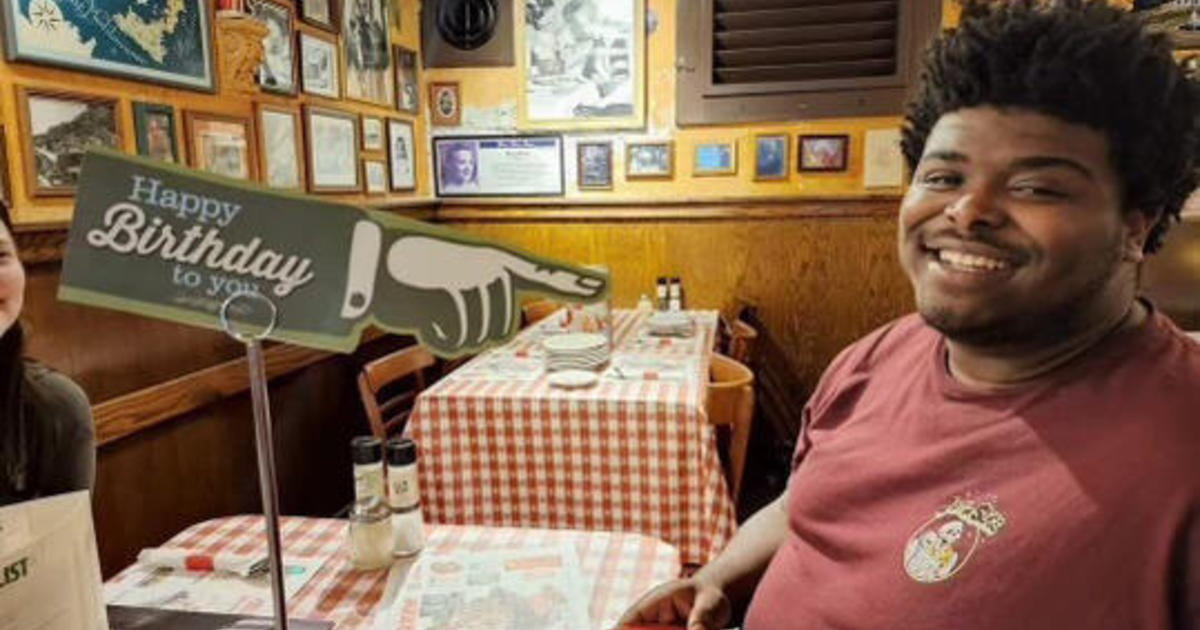Recession Teaches Family Of 9 Lasting Financial Lessons
MINNEAPOLIS (WCCO) -- Parenting usually includes passing down financial knowledge to your kids. But one western Wisconsin family might get more money lessons than most.
Financial planner Mike Kojonen and his wife, Angie, have nine kids. Before you think that sounds too expensive, hear how they make it work.
He tackles portfolios and debt every day at his financial firms in Woodbury and Hudson, Wisconsin.
But, after the close of business at Principal Preservation Services, Mike is home for some real-life cost analysis.
"The best way to teach your kids is by example," Mike said.
From youngest to oldest there is Elli, Ry, Caleb, Alaina, Tori, Sam and Jess. Nicole and Gage are young adults now living on their own. That's nine kids in all.
"When we had our third I said we're done and she says 'no we're not.' She kept talking me into more!" Mike said.
Married for 18 years, Mike and Angie have picked up plenty of their own financial lessons along the way. The hardest came in the late 2000s, when Mike worked in real estate.
"You're living off of the next sale," he said.
But when sales nearly stopped, Mike's income dropped from nearly $200,000 a year to about $40,000 -- with six kids at home.
"We had 2 nice SUVs, we had a house, we had a cabin. We just had this lifestyle that we thought was earned and it really wasn't," Mike said.
The recession served as a wake-up call to the Kojonens. They contemplated bankruptcy to get out from their $100,000 in debt from credit cards and medical bills.
Instead, they bought old cars, moved to a more affordable house and only paid for things in cash.
It's when Mike also made a career change to financial planning.
Along the way, they were honest with their kids about the mistakes they made.
"I always keep money saved, I don't want to be broke and not have any money," Samantha said.
Those years are likely why they are all so candid about cash.
The kids are taught to save and to give 10 percent, and the Kojonens don't believe in allowance. The kids are all expected to pitch in. They earn money if they do something extra.
Angie now only shops with a list and always buys in bulk.
"It's more economical to do it that way," Angie said.
Perhaps the biggest lesson from the Kojonens revolves around college. Mike recommends parents never pay for all of it.
"It's always easier to spend somebody else's money than your own," he said. "Right now about half of the millennials are getting financial help from their parents still. They're instilling something wrong at a young age where they constantly need help."
Above all, Kojonen says we should make our kids part of the money conversation, so they're prepared for the future.
"They understand what it takes to eat out, they understand what gas costs," he said.
It's a team approach to family finances that they can only hope will lead to nine healthy bottom lines.
Mike only recommends consumers use credit cards for the rewards and never carry a balance.
He says it's best for families to take stock of their expenses every two weeks to see if they're on budget, and he says parents shouldn't be afraid of making kids a part of that conversation, too.



